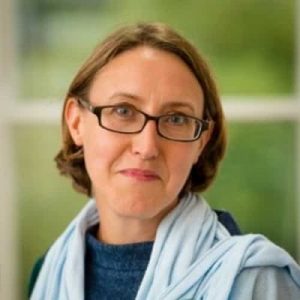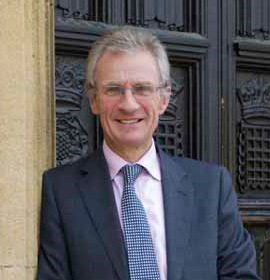Society of Antiquaries, Burlington House, Piccadilly
Multilingualism as an asset: what does the research show?
This session focuses on the research on students learning in a second/additional language, and what we know about key factors in positive academic, linguistic, and socio-emotional outcomes. This will help us understand the evidence base on working with multilingual students, and give us insight into the unique challenges of learning a language while learning through a language.
Multilingualism as an asset: From pedagogy to pastoral
In this session, we will build on the research base we explored in the first session to examine what it would look like to develop a more linguistically inclusive approach in our classes and schools. This will cover all aspects of school life, from classroom conversations to extra-curricular activities and how to enhance the boarding experience of students from linguistically and culturally diverse backgrounds.
The CEFR in academic English language assessment and feedback
This session explores key differences between assessing academic language and general English proficiency and the challenge this represents for schools, colleges and universities. By examining Pupil English tests to understand their design and alignment to the CEFR, we’ll consider how language teachers could leverage Password results to enhance feedback and target interventions. We’ll also consider how schools can help learners ‘look ahead’ to the linguistic demands of degree level study.
WoLLoW (World of Languages and Languages of the World)
In this session, John Claughton, the co-founder of WoLLoW, introduces this languages programme for KS2 and KS3 which aims to teach not a language, but about languages, how they work, where they came from, why they are similar and different and how they relate to all other subjects and many other issues. The course aims to encourage exploration and dialectic rather than teaching and, in particular, to give a voice to the rich language knowledge of our pupils. The idea of WoLLoW resulted from a study addressing a number of concerns about the teaching of languages in schools today, including the fragmented and disjointed way in which languages are taught in junior and senior schools, the lack of co-ordination between departments in schools which are teaching languages, English, Modern Foreign Languages and Classics and the failure of schools to see and use the remarkable linguistic diversity of our pupils, many of whom are bilingual, if not trilingual.

Head of School Partnerships at Password: Dr. Helen Wood
Dr. Helen Wood is our Head of School Partnerships. Educated in Wales with a Doctorate from Geneva University, she brings first–hand experience of the highs and lows of multilingual education experience. Former Deputy Chair of BAISIS and Head of International Section at d’Overbroeck’s College, she joined Password in 2018. Helen fosters Password’s collaboration with independent and international school partners and supports the development of our assessments tailored for the sector.

Co-Founder of WoLLoW (World of Languages and Languages of the World)
Before his richly-deserved retirement, John Claughton taught Classics at Eton for 17 years, was Head of Solihull School for four years and Chief Master of King Edward’s School, Birmingham, his old school, for ten years. At King Edward’s School, John was responsible for the introduction of the International Baccalaureate Diploma. In 2016 he won Tatler Independent School Head of the Year and the TES Independent School Lifetime Achievement Award. He has also published translations of Herodotus and Aristophanes for Cambridge University Press.
